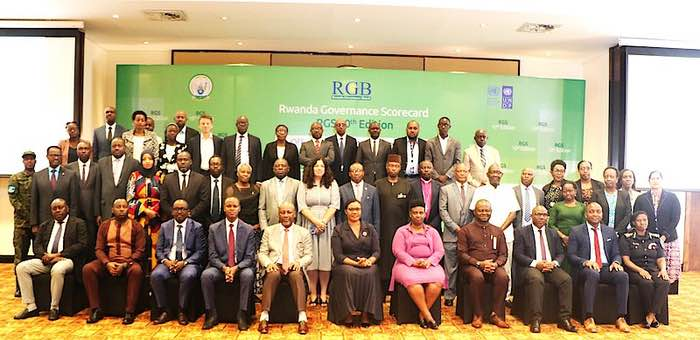
Rwanda Governance Board launched the Rwanda Governance Scorecard (RGS) 10th Edition. The event that took place in Serena Hotel brought together government officials, development partners, members of diplomatic corps, Civil Society Organisations, Media practitioners, researchers and policymakers.
In her keynote address, the Minister in the Office of the President Hon. Uwizeye Judith who was also the guest of honor urged all concerned stakeholders both public, private as well as civil society organizations to address the recommendations formulated in this scorecard as their respective responsibility in order to improve their area of intervention.
“RGS is a very essential tool which revitalizes accountable governance that Rwanda has chosen. It tells us where we are performing well, so that we can keep the momentum, and where we still have gaps, so that we can devise appropriate measures to fill them” she said.
Like the previous editions, the current RGS assesses the state of governance based on the following eight pillars: Rule of Law; Political Rights and Civil Liberties; Participation and Inclusiveness; Safety and Security; Investing in Human and Social Development; Anti-corruption, Transparency and Accountability; Quality of Service Delivery as well as Economic and Corporate Governance.
In the current edition of RGS, Safety and Security remains the highest performing pillar with a score of 93.63% while Investing in Human and Social Development is the lowest performing pillar with a score of 75.51%.
The performance of every RGS edition is compared with the previous editions to allow the trend analysis of each pillar. Additionally, RGS is continuously refined and strengthened by adjusting its methods of assessment. The eight pillars of RGS and 35 indicators were maintained but the number of variables increased from 144 in RGS 9th edition to 151 variables in RGS 10th edition. (End)
